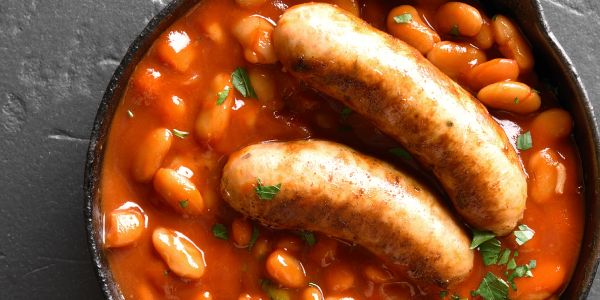
Why Do Beans Make You Fart?
Beans, known for their nutritional value and versatility in various cuisines, have gained a reputation for causing flatulence. You may have experienced the uncomfortable and often humorous side effect of increased gas production after consuming beans. But why do beans make you fart? Let’s delve into the science behind this phenomenon.
Beans and Flatulence
Beans belong to a group of foods known as legumes, which also includes lentils, chickpeas, and peas. Legumes are rich in fiber and complex carbohydrates, which are not easily broken down by the human digestive system. When you consume beans, these complex carbohydrates, known as oligosaccharides, reach the large intestine largely undigested.
The Role of Gut Bacteria
In the large intestine, the undigested complex carbohydrates serve as a food source for the trillions of bacteria that reside there. These bacteria break down the carbohydrates through a process called fermentation. As a byproduct of fermentation, gases like carbon dioxide, hydrogen, and sometimes methane are produced.
The Production of Gas
The gases produced by gut bacteria during the fermentation of complex carbohydrates in beans can lead to increased flatulence. When the gas accumulates in the large intestine, it eventually needs to be released from the body, resulting in farting.
Types of Carbohydrates in Beans
Beans contain specific types of carbohydrates that contribute to their flatulence-inducing properties. The primary culprits are oligosaccharides, including raffinose and stachyose. These complex sugars are not effectively broken down by the enzymes in the small intestine, so they travel to the large intestine intact.
The human body lacks the necessary enzymes to break down oligosaccharides. However, certain types of bacteria in the large intestine possess the required enzymes to digest these complex sugars. As a result, fermentation occurs, leading to the production of gases and the subsequent release of flatulence.
Reducing Flatulence from Beans
While farting after consuming beans is a natural consequence of their composition, there are steps you can take to minimize the associated flatulence:
- Gradual Introduction: If you’re not accustomed to consuming beans regularly, gradually introduce them into your diet. This allows your body to adjust to the increased fiber content and gives the gut bacteria time to adapt to the fermentation process.
- Soaking and Cooking: Soaking dried beans before cooking them can help reduce the oligosaccharide content and make them easier to digest. Additionally, thoroughly cooking beans breaks down the complex carbohydrates further, potentially reducing their gas-producing effects.
- Enzyme Supplements: Some individuals find relief by taking over-the-counter enzyme supplements that contain alpha-galactosidase. This enzyme helps break down oligosaccharides, aiding in their digestion and potentially reducing flatulence.
- Incorporating Other Foods: Combining beans with other foods that contain enzymes capable of breaking down complex carbohydrates can help minimize flatulence. For example, consuming beans with vegetables like carrots, ginger, or fennel may help in the digestion process.
- Rinse Canned Beans: If using canned beans, rinsing them thoroughly under running water before cooking or consuming can help remove some of the oligosaccharides and reduce their gas-producing effects.
- Increase Fiber Intake Gradually: Increasing your overall fiber intake gradually, not just from beans, can help your body adjust to the higher fiber load and potentially minimize flatulence.
It’s important to note that while farting after eating beans is normal, excessive flatulence, abdominal discomfort, or other digestive symptoms may indicate an underlying condition. If you experience persistent or severe gastrointestinal symptoms, it is advisable to consult a healthcare professional for further evaluation.
Beans contain complex carbohydrates that are not easily digested by the human body. When these carbohydrates reach the large intestine, they are fermented by gut bacteria, resulting in the production of gases and increased flatulence. By gradually introducing beans into your diet, soaking and cooking them properly, considering enzyme supplements, and incorporating other digestive-friendly foods, you can help reduce the likelihood and severity of flatulence associated with bean consumption. Remember, flatulence from beans is a natural process, and embracing it with humor can make the experience less awkward and more enjoyable.

